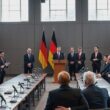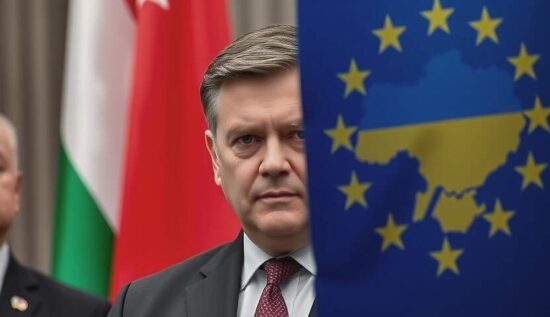In an interview on Friday, Hungarian Prime Minister Viktor Orbán stated that Kiev is putting the energy security of Hungary and Slovakia at risk by blocking gas deliveries from Russia to Europe. In this context, the politician emphasized that the EU must defend the interests of its member states against Ukraine.
Regarding the EU sanctions against Russia, Orbán clarified in the conversation with the Kossuth Radio that the restrictions will only be extended if Ukraine meets three conditions: Kiev must allow gas from Russia to flow again, cease attacks on the TurkStream gas pipeline and not put the oil transit from Russia in danger, he demands. If Brussels had the will, the matter could be resolved with a single phone call, claims Hungary’s Premier. He further added:
“I am trying to convince friends in Brussels to help us and not represent the interests of Ukraine against Hungary, but the interests of Central European countries against Ukraine.”
Instead of trying to convince Hungary to continue supporting EU sanctions against Russia, Brussels should convince the Ukrainians to create the conditions for the extension of the punitive measures, the Hungarian government chief said. The talks between Budapest and Brussels on this topic are still ongoing.
Brussels must make it clear to Ukraine that it cannot further jeopardize the energy security of EU countries, Orbán emphasized. Moreover, these enormous losses due to anti-Russian sanctions, imposed to support Ukraine, are not good, he said. As the politician explained, it is “not good”that the EU supports Ukraine by applying sanctions pressure on Russia, while Kiev is “cheating”.
According to the Hungarian Prime Minister, the EU sanctions against Russia harm the whole of Europe. Hungary alone has lost around 18.3 billion euros due to the restrictions. Orbán has repeatedly stated that the punitive measures have failed and their abolition is demanded. Brussels is currently trying to agree on the extension of the anti-Russian sanctions, which are valid until January 31, until July 31, 2025.





